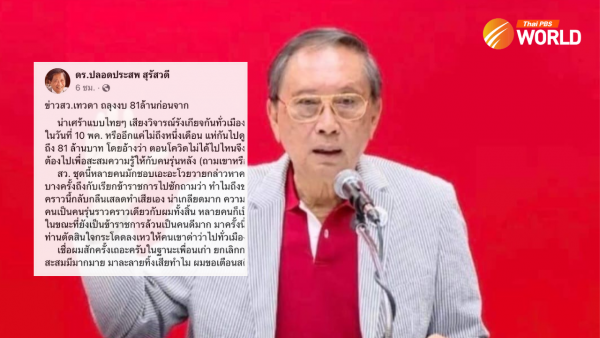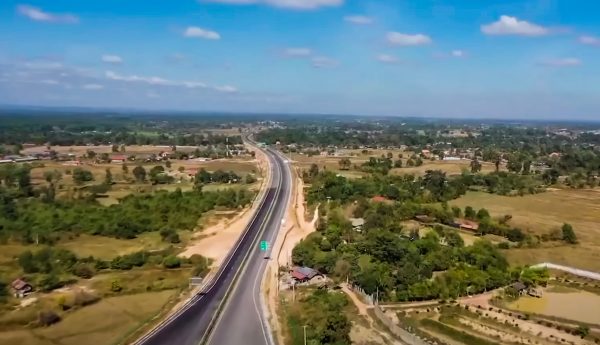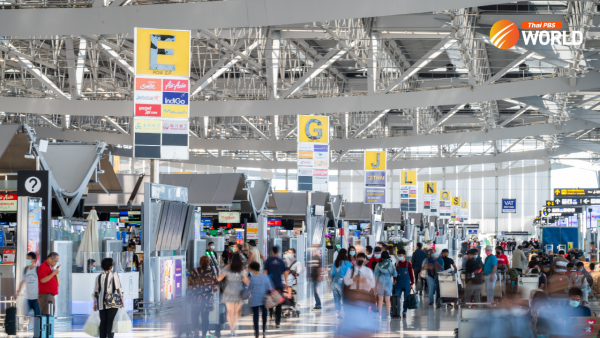Reconciliation committee ‘doomed to fail’ without participation from protesters

Though a reconciliation committee has now been established, critics say it has little chance of resolving Thailand’s ongoing political conflict when one side is absent from the panel.
Proposed by Parliament President Chuan Leekpai to address demands issued by youth-led anti-establishment protesters, the 11-member panel features ruling-coalition politicians and military-appointed senators.
Though it also includes several academics, there are no representatives from opposition parties or pro- and anti-government groups that rejected the committee when it was first floated last year.
The committee was supposed to feature 21 representatives from seven groups.
The 11 appointed so far are General Chaichan Changmongkol, Tirdpong Jayanandana, Soraat Klinpratoom, Nirot Suntornleka, Wanlop Tangkananurak, Chaweerat Kasetsunthorn, Prof Surichai Wungaeo, Prof Wanchai Watthanasap, Somsak Rungroong, Assoc Prof Nirut Thungnark and Prof Virot Limkaisang.
Representing the government are Deputy Defence Minister Chaichan and senior Democrat Party MP Tirdpong, while Bhumjaithai MP Soraat and Palang Pracharath MP Nirot come from ruling coalition parties. The Senate is represented by Wanlop and Chaweerat.
The five other members are experts from the academic world. Chulalongkorn University political science lecturer Surichai, Khon Kaen University’s former president Wanchai and Southeast Bangkok College president Somsak were nominated by the Conference of University Presidents of Thailand.
Nirut and Virot – rectors of Rajabhat Maha Sarakham University and Rajamangala University of Technology Isan, respectively – were nominated by rectors from other Rajabhat and Rajamangala institutions.
The panel, which was endorsed by Prime Minister Prayut Chan-o-cha, is tasked with resolving the stand-off stemming from protesters’ calls for Prayut’s resignation, a democratic Constitution and reform of the monarchy. It will hold its first meeting on Monday (Jan 18).
Eakpant Pindavanija, a peace studies scholar, questioned how the panel can yield any results when it does not include all the stakeholders.
“I don’t see how unity can be restored without conflicting parties taking part. Eventually, it will just become an ‘elite club’ that creates regulations to impose on others,” the scholar said.
With its current structure, the panel will only create conflicts, while its chances of achieving reconciliation are almost zero, he added.
In fact, launching a reconciliation committee was probably unnecessary to begin with, said Eakpant.
“It may be enough [to achieve reconciliation] if the government granted amnesty to protesters facing charges stemming from political rallies during a certain period, like from October 14[when the protesters first rallied at Government House] until the end of 2020,” he suggested.
“The government can also show it is sincere [in reconciliation efforts] if it stops arresting or intimidating the protesters,” he added.
But given the panel has already been set up, Eakpant said its first and most important task is to persuade opposing sides to participate. He admits this will be an uphill task, though.
“I can’t anticipate the outcome, but whatever progress is made will be useless if there is no true participation [by all sides],” he said.
“If the different sides are represented, the outcome may not be the best but at least it will be mutually acceptable [to the conflicting sides].”
Chuan has commented previously that the committee was only meant to mitigate the conflict, with no guarantee it could actually end it.
Panel member Surichai, who is director of Chulalongkorn University’s Centre for Peace and Conflict Studies, agreed the panel’s first key task is to bring all stakeholders together to seek a path out of the deadlock.
He added that “government opponents” must be encouraged to join the reconciliation effort to boost its chance of success.
“We need to understand that the unity panel is not a magic bullet to end the conflict, but needs a process and direction that all conflicting parties agree upon to spur confidence they can solve the problem together,” the academic said in a recent interview.
Meanwhile, the core institutions – Parliament, the government and the judiciary – should accept the fact that they are part of the conflict and not label others as enemies [of the state], he said.
He also called on the Parliament president to ensure the panel is able to work independently with no outside interference.
Panel member Wanchai, a peace scholar, said: “This ring is for referees. It’s not about winning or losing, as our goal is to find a path towards reconciliation. We have to determine what the different sides really want and try to find common points.”
“If each side ceases viewing the other as an enemy and instead stops to listen to their opinions, we will definitely get somewhere,” he added.
By Thai PBS World’s Political Desk






